In the fast-paced world of student life, staying sharp and focused is essential for success. While many strategies exist to help enhance academic performance, one often underestimated factor is nutrition. Just like a car needs fuel to run smoothly, your brain needs the proper nutrients to function at its best. This guide will explore the best vitamins to support memory, concentration, and overall cognitive functions. Whether cramming for an exam or working on a challenging project, understanding how vitamins can boost your brainpower is key to reaching your academic goals. Let's dive in and discover the simple yet powerful ways to optimize your mental performance as a student with brain supplements.
Do vitamins for memory really help?
Yes, memory vitamins really do help. Specific brain supplements are crucial in supporting cognition, including memory and concentration. These vitamins are essential building blocks for neurotransmitters, the messengers in your brain responsible for transmitting signals between nerve cells.
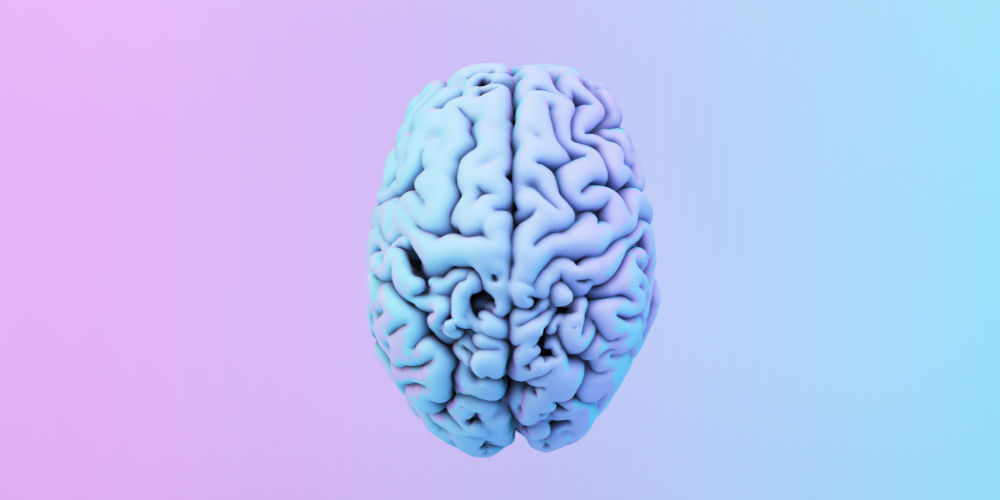
Among the key players are vitamins B6, B9 (folate), B12, C, D, and E, as well as omega-3s. Vitamin B6 is essential for synthesizing neurotransmitters like serotonin and dopamine, which regulate mood and cognition. B9, or folate, produces red blood cells and helps maintain healthy brain function, especially in memory and cognitive processing. Vitamin B12 is crucial for the formation of myelin, a protective layer around nerves that speeds up the transmission of signals in the brain.
So, if you're wondering whether investing in memory vitamins is worth it, the answer is a resounding yes. Incorporating these nutrients into your daily routine can make a tangible difference in your academic performance and overall well-being as a student.
What is the most important supplement for memory?
When it comes to boosting memory, one of the most important supplements to consider is omega-3s, particularly EPA and DHA, found in fish oil. These essential fatty acids play a crucial role in maintaining the structural integrity of brain cells and supporting synaptic function, which is vital for memory formation and retention. Research has shown that regular consumption of omega-3s can improve cognition and protect against age-related cognitive decline, making it a top choice for those looking to enhance their memory. Try out our natural brain supplements for students here.

What vitamin is best for studying?
Vitamin B12 stands out as a top contender for enhancing cognition and focus when gearing up for a study session. This essential vitamin plays a crucial role in nervous system function and the production of neurotransmitters, both of which are critical for optimal brain performance during studying. Whether tackling complex concepts or memorizing critical information, ensuring you have an adequate intake of vitamin B12 can help support your brain's capacity to process and retain new knowledge, making it an invaluable asset for students.
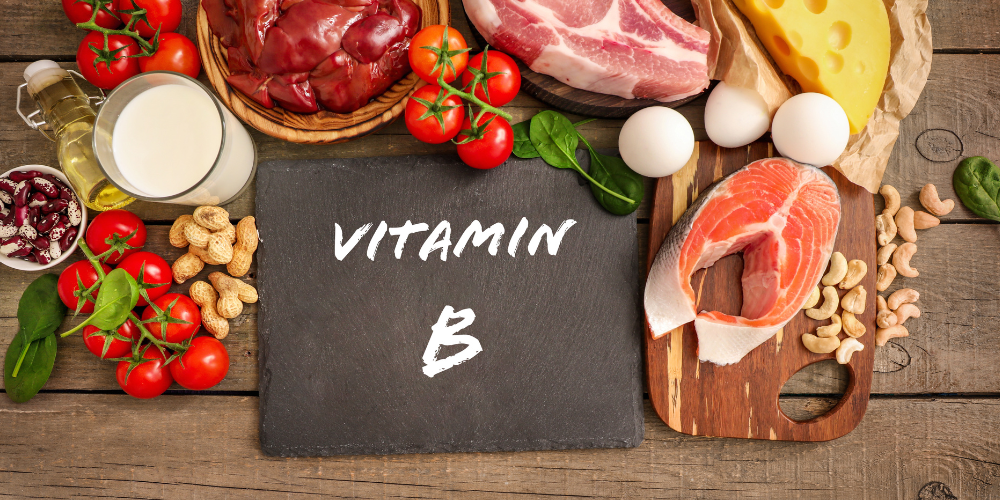
What supplements help you focus on studying?
Several supplements are known to enhance focus and concentration during study sessions. One notable option is L-theanine, an amino acid found in tea leaves. L-theanine has been shown to promote relaxation without causing drowsiness, leading to improved attention and focus, and you can drink certain teas to benefit from this. Another popular choice is b vitamins, which can improve blood flow and neurotransmitter function, acting as a potent brain booster. Additionally, certain adaptogenic herbs like Rhodiola rosea and Panax ginseng have been associated with increased mental clarity and alertness. These supplements offer natural alternatives to caffeine for boosting productivity and enhancing focus while studying.

Which vitamin improves concentration?
Vitamin D
Vitamin D emerges as a key player when it comes to improving concentration. Often referred to as the "sunshine vitamin," vitamin D plays a crucial role in brain health and cognition. Research has linked low vitamin D levels to mild cognitive impairment and decreased attention span. By ensuring you get enough of this vitamin through sunlight exposure, fortified foods, or supplements, you can support your brain's ability to maintain focus and concentration, making it easier to stay on task during studying or other mentally demanding activities.
Sea moss
Incorporating sea moss into your diet can also help improve concentration. Sea moss, also known as Irish moss, is a type of seaweed rich in essential vitamins and minerals, including vitamin A, vitamin C, magnesium, and potassium. These nutrients play vital roles in overall brain function and can support cognitive health. Sea moss is particularly praised for its ability to enhance mental clarity and focus, making it a valuable addition to your diet when aiming to improve concentration during study sessions. Whether consumed in smoothies, teas, or as our sea moss gummy supplements, sea moss offers a natural and nutritious way to boost brainpower and optimize cognition.
What vitamins are good for brain fog and memory?
Several vitamins and supplements can offer valuable support when combating brain fog and enhancing memory. Magnesium is a crucial mineral that plays a role in neurotransmitter function. For improved cognition, look for magnesium supplements for students. Sea moss, rich in essential vitamins and minerals, including iodine and iron, can help combat brain fog and boost memory retention. Mushroom Neuro Food supplements, such as Lion's Mane, have gained attention for their potential to support cognition and memory. Additionally, b vitamins are essential for maintaining brain health and can aid in combating brain fog and enhancing memory. Incorporating these vitamins and supplements into your daily routine can help sharpen mental clarity and improve recall.
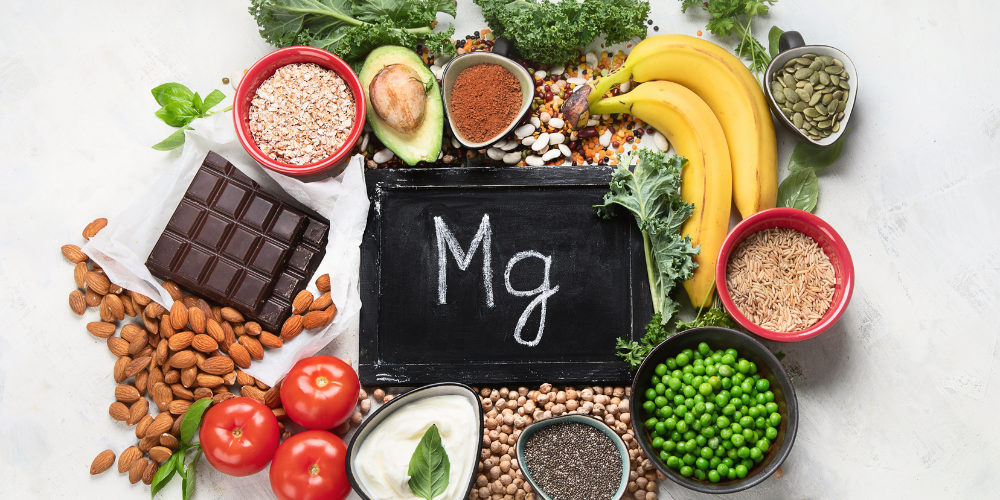
Which are the best brain health supplements?
When it comes to supporting brain health, a combination of vitamins and supplements can provide comprehensive support. Magnesium is essential for neurotransmitter function and can help maintain optimal brain health. Try our magnesium gummies for students for improved cognition and nerve function. Sea moss, packed with essential nutrients like vitamin A, vitamin C, and potassium, promotes brain health and cognition. Our Neuro Charge sea moss gummies for students can help improve focus and working memory for young adults in college. Mushroom supplements, particularly those containing Lion's Mane, have been shown to support nerve growth and protect brain cells. Additionally, omega-3s found in fish oil are crucial for brain health and can help reduce inflammation in the brain. Incorporating these brain-boosting supplements into your daily regimen can nourish your brain and support long-term cognition. Find our brain health supplements for students here.
Which vitamin should I take for cognitive function?
When it comes to selecting the right supplement for cognition, mushroom supplements are increasingly gaining recognition for their potential benefits. Specifically, Lion's Mane mushroom has shown promise in supporting cognition, memory retention, and overall brain health. Research suggests adequate vitamin D levels are essential for optimal brain health and cognition and can help combat depressive symptoms. Additionally, omega-3s found in fish oil are known to support cognitive function and may help protect against mild cognitive impairment. Incorporating these supplements into your daily routine supports your cognitive function and maintains optimal brain health for enhanced mental clarity and performance. To support healthy young adults and increase mental energy, try our Neuro Food mushroom mix dietary supplement.

What are the best vitamins for ADHD?
When it comes to managing symptoms of ADHD, specific vitamins and supplements can offer valuable support. One such vitamin is vitamin B6, which plays a crucial role in neurotransmitter function and has been linked to improved attention and focus in individuals with ADHD. Additionally, omega-3s found in fish oil have been shown to reduce symptoms of ADHD and improve cognition. Furthermore, zinc is another essential nutrient that may help alleviate symptoms of ADHD, as it plays a role in neurotransmitter regulation and cognition. While not a vitamin, iron supplementation is also essential, as iron deficiency has been associated with increased ADHD symptoms. By incorporating these vitamins and supplements into your daily routine, you can support your overall brain health and potentially alleviate symptoms of ADHD. Learn some natural ways to improve ADHD symptoms in students.
What is the best vitamin for concentration and focus?
Regarding enhancing concentration and focus, magnesium is a powerhouse nutrient for brain health. Magnesium plays a vital role in over 300 biochemical reactions in the body, including those crucial for optimal brain function. One of its primary benefits for the brain is its ability to regulate neurotransmitters, the chemical messengers that transmit signals between nerve cells. Magnesium promotes mental alertness, sharpness, and sustained focus by ensuring proper neurotransmitter function.
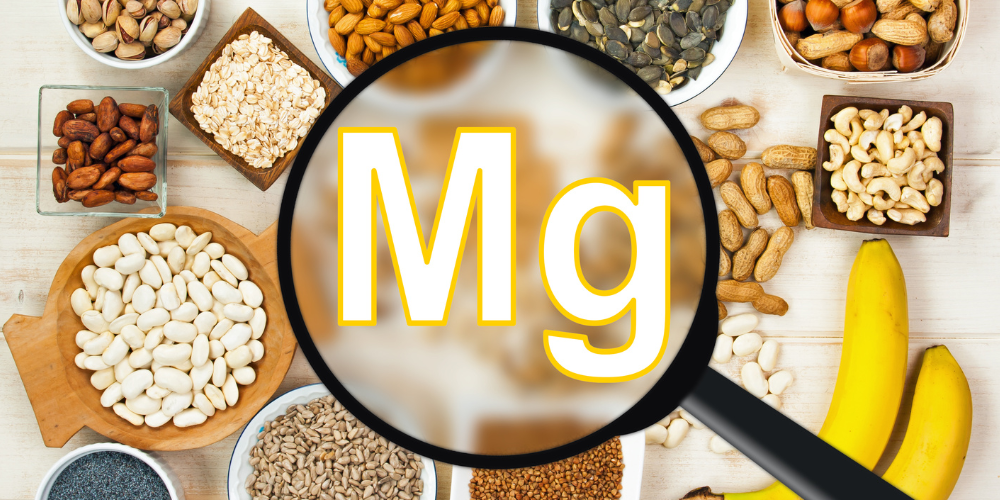
Furthermore, magnesium plays a crucial role in maintaining the integrity of the blood-brain barrier, a protective shield that regulates the passage of substances into the brain. This barrier helps protect the brain from harmful toxins and pathogens, ensuring its proper function.
Additionally, magnesium supports the production of adenosine triphosphate (ATP), the primary energy source for cells, including neurons in the brain. Adequate ATP production is essential for optimal cognition, as it provides the energy needed for neuronal signalling, synaptic plasticity, and overall brain activity.
Moreover, magnesium has been shown to modulate stress response pathways in the brain, helping to regulate the release of stress hormones like cortisol. By keeping stress levels in check, magnesium promotes a calm, focused state of mind, improving concentration and cognition.
Incorporating magnesium-rich foods such as leafy greens, nuts, seeds, and whole grains into your diet, or considering magnesium supplements if needed, can help ensure you maintain optimal levels of this vital nutrient for enhanced concentration and focus.
How can I improve my memory and focus?
Improving memory and focus is all about adopting simple yet effective habits. Start by considering supplements like magnesium gummies, which support brain function and can be easily incorporated into your daily routine. Prioritize getting enough sleep each night, as rest is crucial for memory consolidation, and you need enough sleep to keep your mind sharp. Stay active with regular exercise, even a brisk walk, as it boosts brain health and improves focus. Remember to take short breaks while studying or working to avoid mental burnout and maintain productivity. Always fuel your brain with a balanced diet of fruits, vegetables, lean proteins, and whole grains to support brain health. Following these straightforward steps can boost your memory and focus for better cognitive performance in your daily tasks.

What deficiency causes poor concentration?
One common deficiency linked to poor concentration is iron deficiency. Iron is essential for producing haemoglobin, which carries oxygen to the brain. When your brain doesn't receive enough oxygen, it can lead to difficulty focusing and concentrating. Ensuring an adequate intake of iron-rich foods like red meat, poultry, fish, and leafy greens can help prevent this deficiency and support optimal brain function.

Another deficiency that can cause poor concentration is vitamin D deficiency. This vitamin plays a crucial role in brain health and cognition, and low levels have been associated with impaired concentration and focus. Magnesium deficiency can also contribute to poor concentration, as magnesium is involved in neurotransmitter function and stress response regulation. Incorporating vitamin D-rich foods like fatty fish, fortified dairy products, mushrooms, and magnesium-rich foods like nuts, seeds, and whole grains into your diet can help prevent deficiencies and support optimal brain function.
What pill can I take to improve my memory?
One option to consider when looking for a pill to enhance memory is a supplement containing omega-3s. Omega-3s, particularly EPA and DHA found in fish oil, have been shown to help with brain health and assist memory function. Additionally, supplements containing ginkgo biloba extract may help with memory by sending more blood to the brain and supporting cognitive function.
Incorporating mushroom supplements into your regimen is another option worth considering for improving memory. Certain mushroom varieties, such as Lion's Mane, have gained attention for their potential cognitive benefits. Lion's Mane mushroom contains compounds that may stimulate nerve growth factor (NGF) production, which could support the growth and repair of brain cells involved in memory and cognition. Combining omega-3 fatty acids with our Neuro Food mushroom mix for students can provide a comprehensive approach to enhancing memory and enhance cognitive function.
How can I memorize and concentrate faster?
Improving your ability to memorize and concentrate faster involves adopting a holistic approach encompassing various aspects of your lifestyle.
Sleep properly
Firstly, prioritize getting sufficient sleep each night, as sleep plays a crucial role in memory consolidation and cognition. Aim for 7-9 hours of quality sleep to allow your brain to recharge and process information effectively. Learn about sleep and memory here.
Memory Tips
Next, implement memory-enhancing techniques like spaced repetition, visualization, and association. Break down the information into smaller, manageable chunks and create mnemonic devices or use visual aids to help reinforce memory retention.
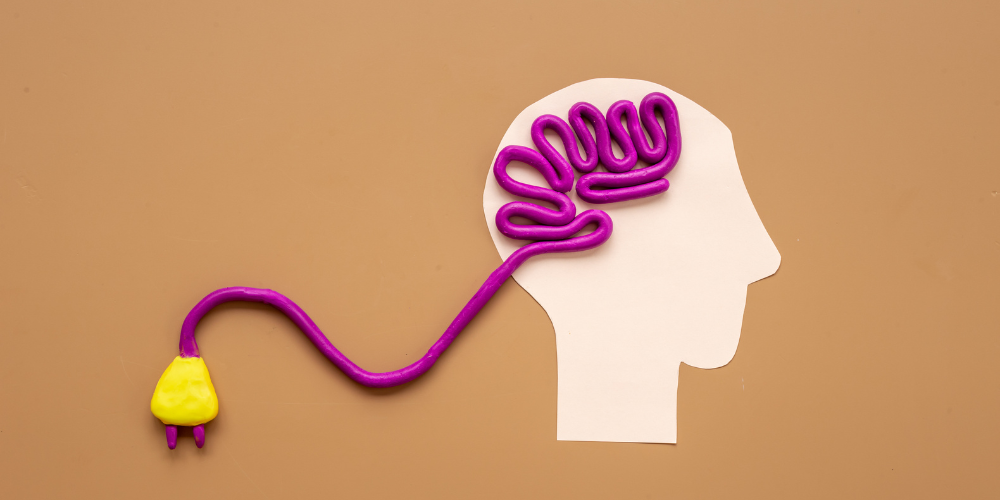
Varied and healthy diet
Incorporate a balanced diet rich in brain-boosting nutrients such as omega-3 fatty acids, found in fatty fish like salmon and walnuts, and antioxidants found in colourful fruits and vegetables. Consider adding memory supplements like ginkgo biloba or mushroom supplements containing Lion's Mane, which have shown promise in supporting cognition and memory retention.
Stay active
Stay physically active with regular exercise, as it improves blood flow to the brain and enhances mood and cognition. Aim for at least 30 minutes of moderate-intensity exercise, whether walking, jogging, swimming, or yoga, most days of the week.
Do things you enjoy
Lastly, don't forget to engage in hobbies and activities that stimulate your mind and provide enjoyment. Taking breaks and pursuing interests outside of studying or work can help prevent mental burnout and improve overall cognition.

By incorporating these lifestyle factors into your daily routine, you can enhance your ability to memorize and concentrate faster while maintaining a healthy balance in your life.
Does Ginkgo biloba help with studying?
Yes, Ginkgo biloba can help with studying. This herbal supplement has been studied for its potential to enhance cognitive function, including memory, concentration, and overall brain health. Ginkgo biloba increases blood flow to the brain, which may help improve oxygen and nutrient delivery to brain cells, thus supporting optimal cognitive performance during study sessions. When combined with a balanced diet, proper sleep, regular exercise, and memory-enhancing techniques, Ginkgo biloba can be a valuable addition to your study routine, helping you stay focused and retain information more effectively.

Does Ginkgo biloba improve memory?
Yes, Ginkgo biloba can improve memory. Ginkgo biloba may assist with memory formation, retention, and recall by increasing blood flow to the brain and supporting neurotransmitter function. Studies have demonstrated its potential to enhance memory performance, particularly in older adults experiencing age-related memory decline. When used alongside a varied diet rich in brain-boosting nutrients, adequate sleep, regular exercise, and memory-enhancing techniques, Ginkgo biloba can be a valuable tool for enhancing memory function and overall cognitive health. As with any supplement, it's essential to consult with a healthcare professional before adding Ginkgo biloba to your regimen to ensure it's safe and appropriate for you.
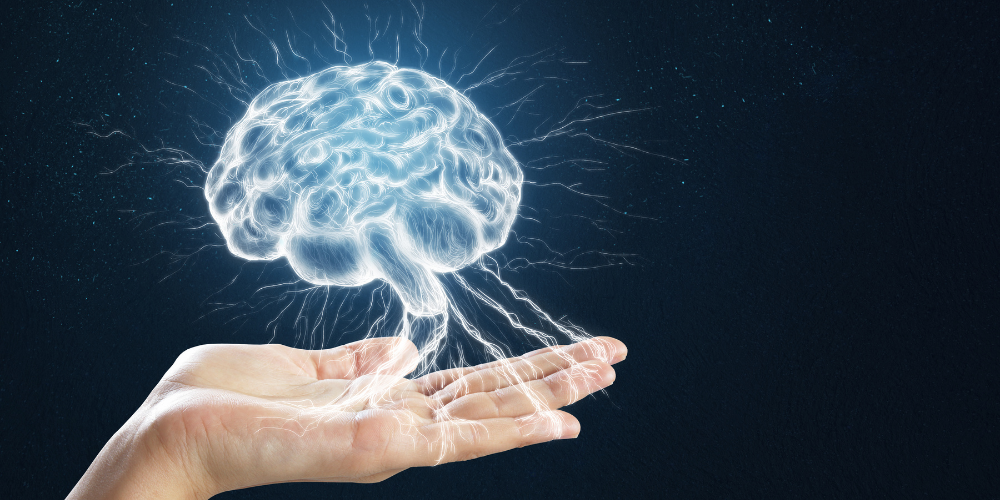
FAQs
Is vitamin B12 good for studying?
Yes, vitamin B12 is beneficial for studying. It plays a crucial role in brain health and cognitive function, including memory and concentration. Adequate levels of vitamin B12 support the production of neurotransmitters involved in learning and focus, making it essential for optimal brain performance during study sessions.
What vitamins are best for ADHD?
The best vitamins for ADHD include omega-3 fatty acids, zinc, iron, and vitamin D. Omega-3s improve brain health and may help reduce symptoms of ADHD. Zinc and iron are essential for neurotransmitter regulation and cognitive function, while vitamin D plays a role in brain health and mood regulation, potentially alleviating ADHD symptoms and helping with mental health. Learn about managing ADHD in college here.
What vitamin deficiency is poor memory?
Poor memory can be linked to various vitamin deficiencies, including iron, magnesium, vitamin B12, and folate. Vitamin D deficiency may impair cognitive function and memory retention, while low vitamin B12 and folate levels can affect neurotransmitter production, leading to memory problems.
What vitamins help you memorize easy?
Vitamins that help make memorization easier include b vitamins, omega-3s and magnesium. These vitamins support brain health, neurotransmitter function, and cognitive performance, enhancing memory retention and recall.
What improves forgetfulness?
Improving forgetfulness involves adopting lifestyle habits that improve brain health and cognitive function. These include getting enough sleep, staying physically active, eating a balanced diet rich in brain-boosting nutrients, practising memory-enhancing techniques, and managing stress effectively.
Can taking vitamins prevent Alzheimer's disease?
While taking vitamins alone may not prevent Alzheimer's disease, maintaining overall brain health through a healthy lifestyle, including proper nutrition, regular exercise, cognitive stimulation, and social engagement, may help reduce the risk of developing Alzheimer's and other forms of dementia.
What are the 3 most important vitamins?
The three most important vitamins for overall health and well-being are vitamin D, vitamin B12, and vitamin C. Vitamin D supports bone health, immune function, and mood regulation, while vitamin B12 is essential for nerve function and cognitive performance. Vitamin C is a powerful antioxidant that supports immune function and collagen production.
How can I improve my forgetful memory?
To improve forgetful memory, focus on adopting lifestyle habits that support brain health, such as getting enough sleep, staying physically active, eating a balanced diet rich in brain-boosting nutrients, practising memory-enhancing techniques, and managing stress effectively. Additionally, consider further incorporating memory supplements or cognitive training exercises to support memory function.

